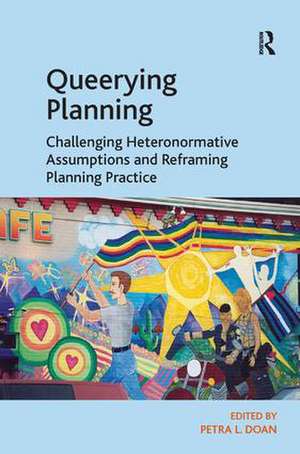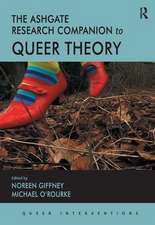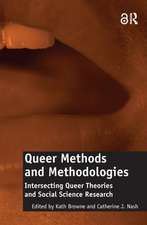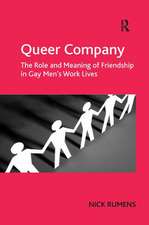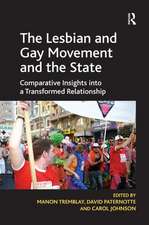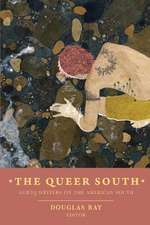Queerying Planning: Challenging Heteronormative Assumptions and Reframing Planning Practice
Editat de Petra L. Doanen Limba Engleză Hardback – 20 sep 2011
| Toate formatele și edițiile | Preț | Express |
|---|---|---|
| Paperback (1) | 261.73 lei 43-57 zile | |
| Taylor & Francis – 14 oct 2024 | 261.73 lei 43-57 zile | |
| Hardback (1) | 1061.81 lei 43-57 zile | |
| Taylor & Francis – 20 sep 2011 | 1061.81 lei 43-57 zile |
Preț: 1061.81 lei
Preț vechi: 1294.89 lei
-18% Nou
Puncte Express: 1593
Preț estimativ în valută:
203.17€ • 212.70$ • 168.12£
203.17€ • 212.70$ • 168.12£
Carte tipărită la comandă
Livrare economică 07-21 aprilie
Preluare comenzi: 021 569.72.76
Specificații
ISBN-13: 9781409428152
ISBN-10: 140942815X
Pagini: 294
Dimensiuni: 156 x 234 x 18 mm
Greutate: 0.66 kg
Ediția:1
Editura: Taylor & Francis
Colecția Routledge
Locul publicării:Oxford, United Kingdom
ISBN-10: 140942815X
Pagini: 294
Dimensiuni: 156 x 234 x 18 mm
Greutate: 0.66 kg
Ediția:1
Editura: Taylor & Francis
Colecția Routledge
Locul publicării:Oxford, United Kingdom
Public țintă
AcademicNotă biografică
Petra I. Doan, Associate Professor, Department of Urban and Regional Planning, Florida State University, Tallahassee, Florida, USA
Cuprins
1: Why Question Planning Assumptions and Practices about Queer Spaces; I: Planning Theory and Practice; 2: Queerying Planning Practice: Understanding Non-Conformist Populations; 3: Lavender Landmarks Revisited: Advancing an LGBT Preservation Agenda 1; 4: Querying Planning (Theory): Alphabet Soup or Paradox City?; 5: Queerying Identity: Planning and the Tyranny of Gender; 6: Queering the Suburbs: Analyzing Property Values in Male and Female Same-Sex Suburbs in the United States; II: Governance and Political Issues; 7: Queerying Planning in Australia: The Problems and Possibilities of Multiscalar Governance for LGBT Sexual Minorities; 8: Queering the Political-Economy: Anti-discrimination Law and the Urban Regime in Orlando, Florida; 9: Queerying Creative Cities; III: Regulating Sex in the City; 10: Planning for Sex/Work; 11: Queerying Urban Governance: The Emergence of Sex Industry Premises into the Planned City; IV: Reflections and Conclusions; 12: Reflections on Classic Articles on Planning and LGBT Communities; 13: Conclusions and Reflections for the Future: Reframing Planning Practice
Recenzii
'Queering Planning is a greatly needed collection of both new and influential literature on queer issues in planning. It is an essential source for planning academics who study LGBT issues and an inspiration for practitioners who seek a deeper understanding of diversity, inclusion and justice in planning. It captures the evolution of the planning profession at a key moment that enlightens about the behavior of professions.' Curt Winkle, University of Illinois at Chicago, USA
Descriere
This volume fills a gap in the literature on planning and the development of queer spaces. It highlights the resistance there has been within the planning profession to incorporate gay and lesbian concerns into the planning mainstream. Bringing together leading academic planners and geographers, it reflects on the ways in which issues germane to the lesbian, gay, bisexual, and transgender community have been slowly integrated into the planning mainstream, as well as those topics on which there is more work to do.
